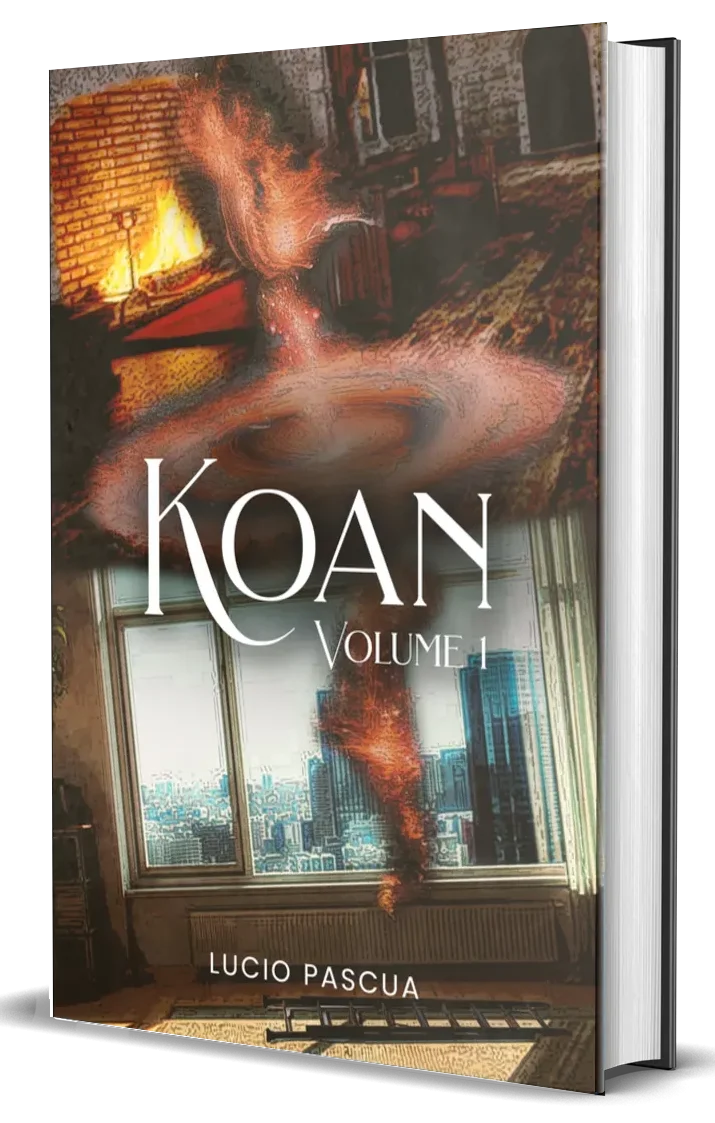Some novels pull you in with action and spectacle. Others speak to you softly, leaving space for thought. Lucio Pascua’s KOAN belongs to the second kind. It is a story that moves at its own pace, full of reflection and wonder. Blending elements of myth, philosophy, and fantasy, Pascua has written a book that challenges readers to think beyond simple ideas of good and evil and instead explore the beauty and tension of balance.
At first glance, KOAN feels like a grand fantasy, filled with guardians, leaders, and a universe shaped by cosmic laws. But as the story deepens, it reveals itself to be something more—a meditation on what it means to live wisely and compassionately in a complex world. The mythical beings that inhabit the story, such as the Northern Tortoise and the Eastern Dragon, are more than figures of legend. They are symbols of endurance and vision, reflections of the natural and spiritual forces that shape existence.

Among the human characters, El-Javaz stands as one of the book’s most striking figures. He is a ruler who believes in peace even when surrounded by conflict. His leadership challenges those around him, and through his struggles, Pascua explores what it truly means to hold power responsibly. El-Javaz’s philosophy of empathy and restraint gives the novel its moral center. His approach feels especially relevant in a time when strength is often mistaken for domination.
In contrast, the character of Hel represents what happens when pain becomes purpose. His darkness is not random—it is built from generations of cruelty and neglect. Pascua does not treat him as a villain to be defeated but as a warning about what happens when understanding is replaced by vengeance. The tension between El-Javaz and Hel forms the moral heart of KOAN, a reflection of the eternal conflict between creation and destruction that exists both in the universe and within ourselves.
What makes KOAN stand out is how it uses fantasy to explore real-world truths. Pascua’s universe is not just a place of imagination but a landscape of ideas. The balance between chaos and order, faith and doubt, peace and aggression—these are not abstract concepts here. They are lived experiences for the characters, and their struggles mirror the same questions we face in daily life.
The writing is calm and measured, with a tone that feels almost meditative. Pascua’s prose invites readers to slow down and listen. Each chapter feels like a step in a larger journey toward understanding. Rather than relying on spectacle, the story builds its power through reflection. This is a novel meant to be read thoughtfully, not hurried through.
Pascua also brings warmth to his world through small, grounding details. Scenes of candlelight, quiet meals, and music appear throughout, giving the story a human pulse. These touches keep the book from becoming distant or abstract, reminding us that even in a vast universe, meaning often begins with ordinary acts of care.
KOAN is a story about the balance between the mind and the heart, knowledge and mystery, and light and darkness. Pascua’s vision is both ambitious and personal, rooted in a belief that wisdom and compassion must guide every choice. This is not just a fantasy tale but a work of reflection, one that invites readers to think about their own place in the world. KOAN leaves you not with a conclusion, but with a sense of peace and curiosity, as if the story continues quietly within you long after you close the book.
Head to Amazon to purchase your copy of KOAN.
Koan: Volume l (The Koan Saga Book 1): https://www.amazon.com/dp/B0FHDQN2C1.
Koan: Volume ll (The Koan Saga Book 2): https://www.amazon.com/dp/B0FSTJG21M.
KOAN by Lucio Pascua is a thought-provoking blend of literary fiction, philosophical fantasy, and magical realism that invites readers into a universe where myth, science, and spirit intertwine. Set in a world guided by celestial Guardians—the Northern Tortoise, Eastern Dragon, and others—the novel explores the delicate balance between chaos and order, destiny and choice, light and shadow. Through its layered narrative, KOAN follows characters like El-Javaz, a leader devoted to peace in a divided kingdom, and Hel, a figure shaped by generations of darkness, to examine how belief, morality, and transformation shape the human experience. Rich in symbolism and allegory, the story unfolds like a meditative journey, encouraging readers to pause, reflect, and look inward. At once imaginative and deeply philosophical, KOAN is not just a tale of cosmic conflict—it is a mirror held up to our own world, asking us to rethink power, purpose, and the nature of enlightenment itself.